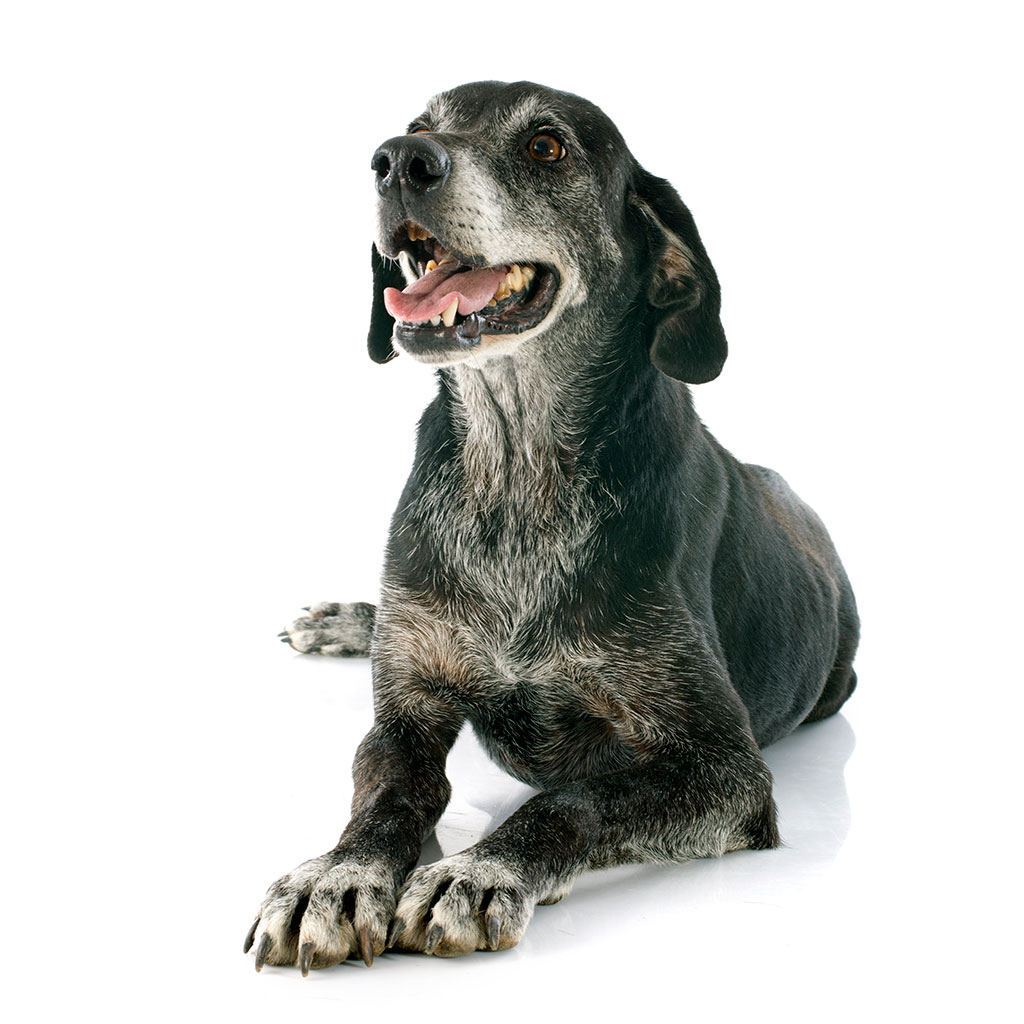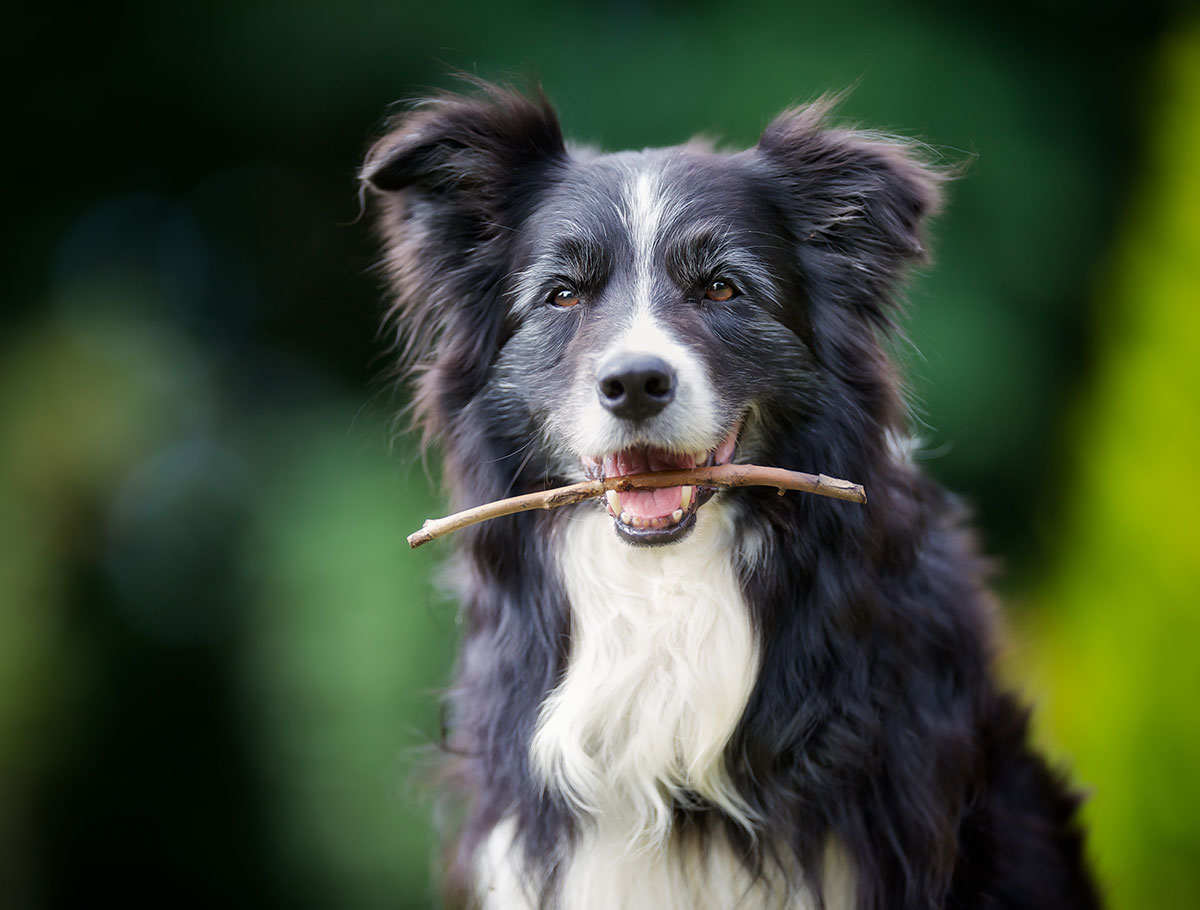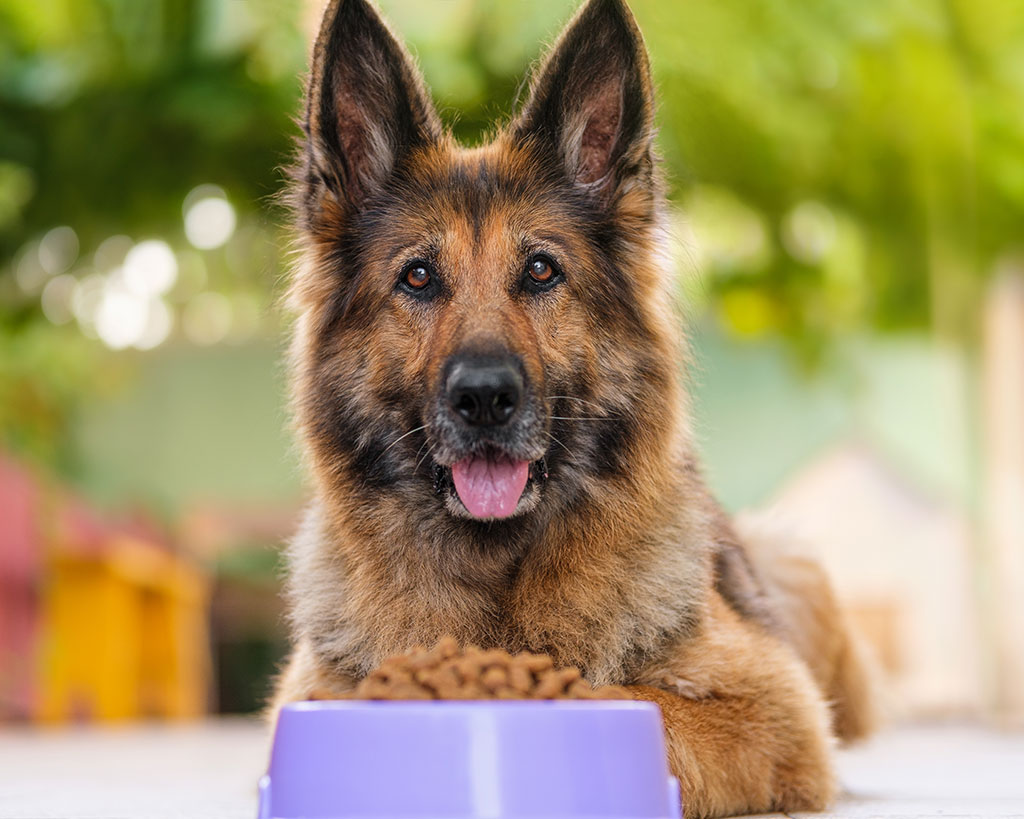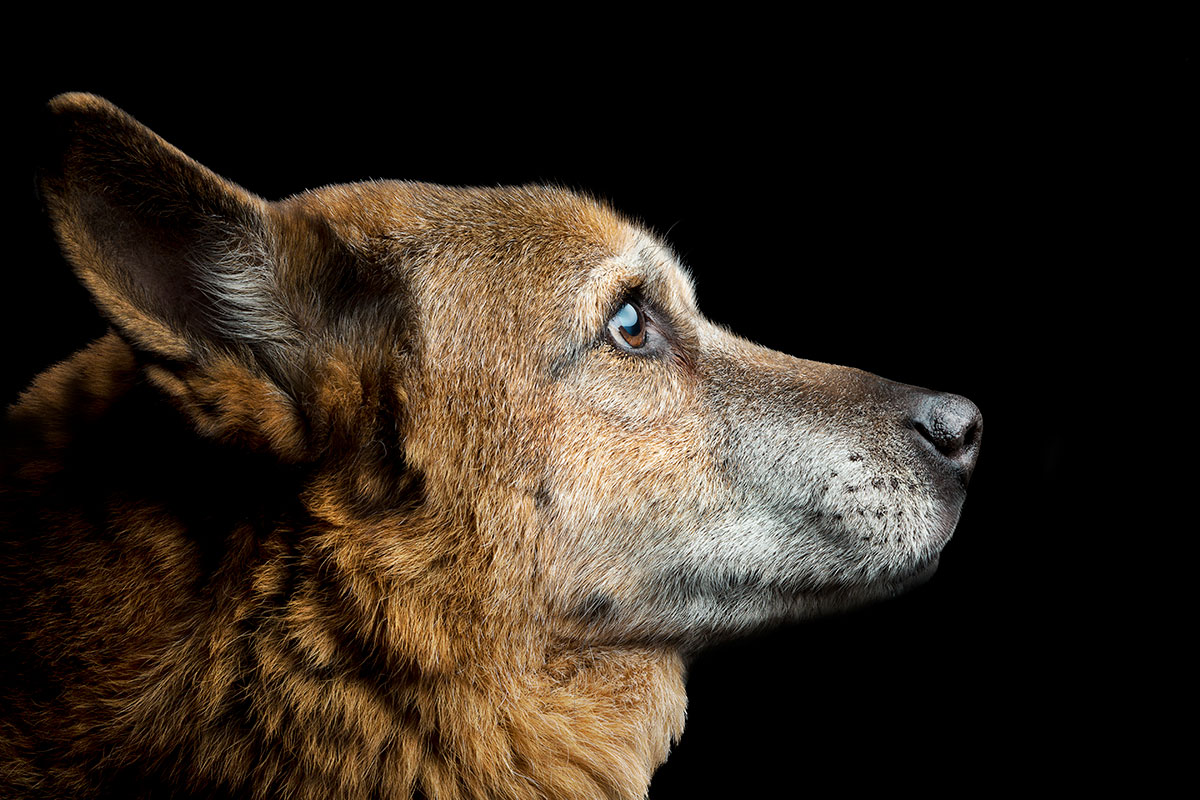Looking after
your senior pet
When is a pet classified as being senior or mature?
Dogs and cats are considered to be mature adults once they turn 7 years old. Large breed dogs age more quickly and are considered mature at 5-6 years of age.
What are some of the signs of ageing that a pet owner should look out for?
A pet owner may notice changes to the pet’s appearance such as some grey hairs appearing. Pets may also develop hearing loss and reduced vision.
Even if a mature pet does not outwardly appear old, certain changes are progressively taking place. These include changes in their organ systems such as their immune system, digestive system and certain behavioural changes. Behavioural changes include things like changes in their interactions with the family, changes in thinking and becoming confused about where the door is or where their bed is. It can be alterations in their sleeping patterns and toileting accidents when they were previously well toilet-trained. And with advancing age there is also an increased risk of many age-related complications and disorders.Click hereto read more about signs that are not normal age related changes.


What care should I be providing to my ageing pet?
All pets should be kept up to date with all preventative health care, regardless of age. This includes vaccinations, worming and flea control (amongst other things like ticks and heartworm depending on location). Having a daily dental care routine is vital to protect against dental disease. All pets should receive regular veterinary health checks and should be fed age appropriate nutrition. Hill’s Science Diet portfolio provides science-led nutrition for healthy older dogs and cats of every size and a variety of needs.
Older pets should be groomed regularly to keep their coat healthy. This is particularly relevant to older cats with mobility issues who may struggle to groom. Regular grooming can help to stop painful and unattractive matts from forming.
Why should I feed a senior/mature adult food to my pet?
Older animals often have decreased nutrient digestion, which means they cannot absorb the nutrients from their food as well as younger animals. It is therefore important to feed a food made with easy-to-digest ingredients for healthy digestion.
Older pets can also be prone to weight gain as they are not burning as many calories exercising, so it is important to feed foods that are specially formulated to support their energy and activity levels. Feeding a food containing high quality protein to support lean muscles will also help a mature pet maintain a healthy body condition.
Senior foods should also contain balanced minerals to support kidney and heart health, because excess minerals can lead to worsening of underlying disease.
Hill’s Science Diet Senior Vitality rangeis our breakthrough formula to help improve your senior pet’s everyday ability to get up & go.


When should I switch to a senior food?
Even if your pet is not showing any outward signs of ageing, they should still be transitioned to a senior food at 7 years for cats & small/medium dog breeds and 6 years for dogs > 25kg. It is important to recognise that the benefits of feeding good nutrition accrue over a long period of time, so it is important to feed your pet a food appropriate for their changing needs throughout their lifetime.
How frequently should we be taking our senior pets for a check over at the vet?
The general consensus from veterinarians is that senior pets should be checked by the vet every 6 months (or more frequently if there are health concerns). Whilst it might seem frequent, it is actually only every 4 dog or cat years.
Check-ups are an opportunity to raise any concerns you might have, as well as have the vet perform a thorough physical examination of your pet. The vet may also recommend blood and urine tests to screen for diseases. This gives you the best chance of detecting something early so that it can be treated or managed successfully.

Dr Annabel Robertson BVSc (Hons) MANZCVSc MBA,
Annabel graduated from the University of Melbourne with honours in 2008. Since then she has worked as a small animal veterinarian in private practice in Australia and the UK. She also completed an internship in small animal medicine during this time and sat her membership in small animal internal medicine in 2012, and finished her MBA in 2015. Annabel joined the Hill’s Pet Nutrition team in 2015 as Professional Consulting Veterinarian, VIC/TAS.
References:
- American Veterinary Medication Association:
https://ebusiness.avma.org/files/productdownloads/petsagefaster.pdf
© 2023 Hill’s Pet Nutrition Pty Ltd. HIMA-BS-23281C13
